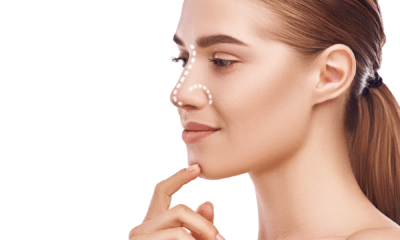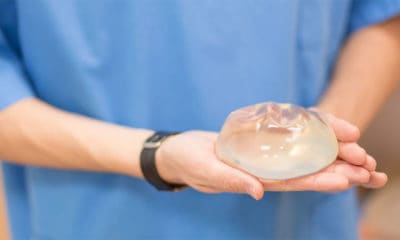
Patients who visit a plastic surgeon for a consultation are wanting to look better. Perhaps more importantly, they are wanting to feel better. Facial rejuvenation and body contouring procedures can improve self-esteem, body confidence and even make patients feel more vital and energetic. However, in order to get the most out of an aesthetic procedure – whether it’s something simple like an injectable or more complex, such as a tummy tuck – patients need to adopt a healthy lifestyle.
Diet and exercise are not only crucial for achieving the best possible result, but also for ensuring that those results last for as long as possible. Board certified plastic surgeon Dr. Adam Hamawy of Princeton, NJ discusses why the diet and exercise conversation is a part of every one of his consultations.
Diet, Exercise & Plastic Surgery
“I think that diet and exercise are a critical component to looking your best,” says Dr. Hamawy. Everyone who comes in to see him wants to look better, but the ultimate goal, for most, is to try and feel better. “Plastic surgery has a role in this, but it doesn’t replace having a healthy lifestyle,” he shares.
If someone comes in and he or she has not yet fully embraced a healthy lifestyle, Dr. Hamawy will have a discussion about why diet and exercise are so important. Eating well and working out regularly help ensure:
- the best possible results from your aesthetic procedure
- that these results will be long lasting
- general well-being and health
Guide Patient Towards Appropriate an Guide
Patients who aren’t willing to put in the work and commit to a healthy lifestyle are not going to be happy in the long run. If there is no upkeep and maintenance, “whatever changes I’m going to make are only going to be temporary,” explains Dr. Hamawy. For example, let’s say that you have liposuction. The fat cells that are removed are gone for good, but if you gain more than 10 lbs. after your procedure, your remaining fat cells will expand. This, in turn, will once again throw off your body contour.
Dr. Hamawy assesses the patient’s lifestyle during the initial consultation. His advice is sometimes as simple as portion control. If the patient needs more help, he will often refer him or her to a nutritionist who can come up with a customized plan. “We sort of guide them to someone who can guide them,” he mentions.
Daily Exercise is Ideal
Dr. Hamawy strongly urges all of his patients towards some form of daily physical activity. This can be as simple as walking! Ideally, especially if you are seeking a body contouring procedure, he likes for his patients to work with a professional. If you are going to invest in plastic surgery, it’s best to have a regular routine and work with a personal trainer – even if it’s only once a month.
For many of his patients, the plastic surgery is a jump start towards a healthier lifestyle. However, if the patient is not open to diet and exercise changes then, again, whatever is achieved with the surgery probably won’t last. It is paramount that the patient have realistic expectations. No plastic surgery procedure is a substitute for weight loss or proper nutrition.
Diet & Exercise Are Great for Your Skin
Another enormous benefit of a great diet and exercise regime is that it can vastly improve the health of your skin. Since the skin is the foundation upon which every aesthetic procedure rests, keeping it in tip-top shape will lead to better results. A patient can have a fantastic facelift that lifts the skin into a more youthful position, but if the skin itself has poor texture and is dehydrated, the end result will not be as good as it could be. “When we’re doing plastic surgery, we are addressing only one part of the body at a time,” explains Dr. Hamawy. Diet and exercise, on the other hand, are anti-aging for your entire body. It won’t just improve the treatment area, but also everywhere else.
It’s Important to Treat the Whole Person
“I really like to look at the whole person,” says Dr. Hamawy, because his long term goal is to make the patient feel better both inside and out. “In the end, as plastic surgeons, we are still physicians and we should kind of fall back on those basics. We are looking at the overall well being of that patient.”















Facebook
Twitter
Instagram
YouTube
RSS